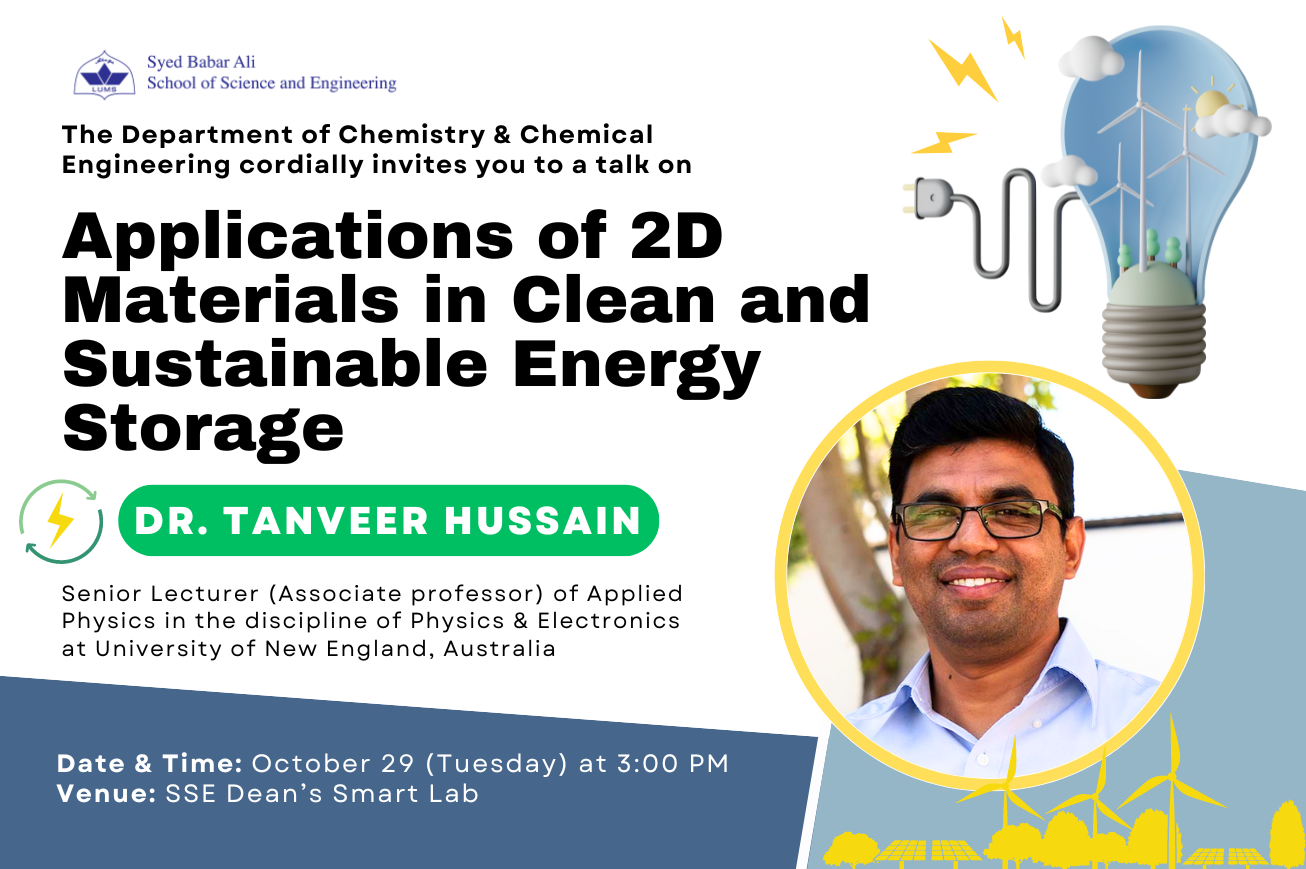
Applications of 2D Materials in Clean and Sustainable Energy Storage
1. Wael et al. Journal of Energy Storage 98, 11301 (2024)
2. Hussain et al. Applied Surface Science, 629, 157391 (2023)
3. Kaewmaraya et al. ACS Appl. Mater. Interfaces, 16, 37994–38005(2024)
Dr Tanveer Hussain is a Senior Lecturer (Associate professor) of Applied Physics in the discipline of Physics & Electronics at University of New England, Australia. He completed his PhD in computational condensed matter physics (computational designs of clean energy storage materials) from Uppsala University, Sweden. His PhD research led to the design of several new classes of nanomaterials for efficient hydrogen storage applications. Dr Tanveer has many years of experience in the field of hydrogen storage, rechargeable batteries, nano sensors, and nano biosensors at prestigious institutions, including Royal Institute of Technology (KTH, Sweden), The University of Queensland (Australia), and The University of Western Australia. He designs novel materials for a diverse range of applications and his current direction of research includes the rational design of functional materials for hydrogen storage and electrodes for rechargeable batteries. Dr Tanveer is an author of more than 180 peer reviewed publications, many in prestigious top-tier journals like Advanced Energy Materials, ACS Energy Letters, Advanced Functional Materials, Angewandte Chemie, Small, and Nano Energy etc. He has collaborated with research teams across the world.

